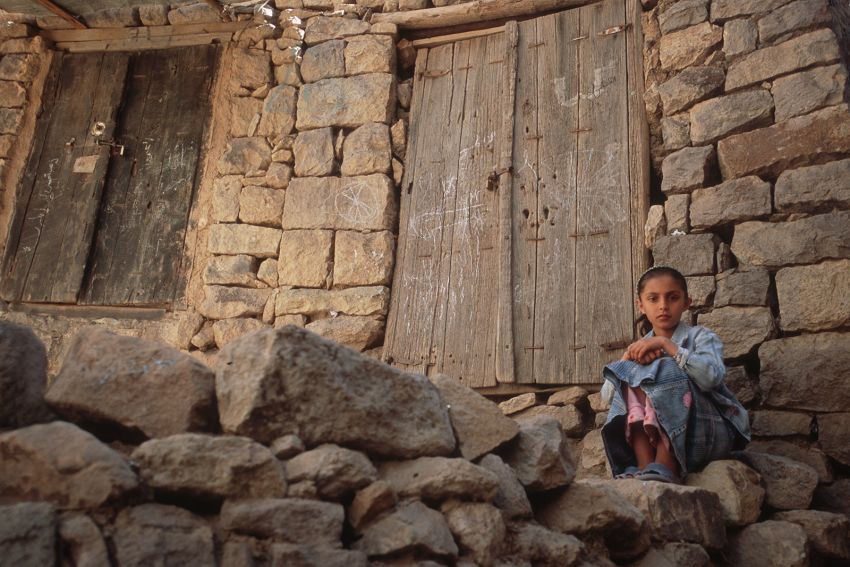
The war in Yemen has caused the deaths of up to 112,000 civilians according to The Armed Conflict Location & Event Data Project (ACLED). More than 85,000 people have died as a result of an ongoing famine due to the war.
The six-year war between the United States-backed and Saudi Arabian-led coalition and Yemen’s Houthi rebels has been catastrophic. The country’s infrastructure, including roads, hospitals, water and electricity works have been destroyed. The US, which was one Yemen’s largest aid donors, suspended millions of dollars in aid to Houthi-controlled areas.
The war began in 2014. In March, 2015, the Saudi-led coalition, mainly members of the Gulf Cooperation Council (GCC), began its campaign of air strikes against the Arab nation. The GCC has been fighting Houthi rebels with weapons from the European Union and the US.
Yemen was one of the poorest countries in the Arab world before the war began. Since the GCC involvement in Yemen began, the situation there has been described by organisations such as Unicef as “the largest humanitarian crisis in the world”, where “children are being robbed of their futures”. According to Associated Press, “around 2.9 million women and child are acutely malnourished.”
Independent Australian journalist Caitlin Johnstone wrote: “When people hear the word "famine" they usually think of mass hunger caused by droughts or other naturally occurring phenomena, but in reality the starvation deaths we are seeing in Yemen (a huge percentage of which are children under the age of five) are caused by something that is no more natural than the starvation deaths you'd see in a medieval siege.
“They are the result of the Saudi coalition's use of blockades and its deliberate targeting of farms, fishing boats, marketplaces, food storage sites, and cholera treatment centres with airstrikes aimed at making the Houthi-controlled parts of Yemen so weak and miserable that they break.”
US Secretary of State Mike Pompeo plans to designate the Houthis as a foreign terrorist organisation on January 19 — one day before US president Donald Trump leaves office. The intention is to to prevent any healing of relations between Iran and Iran's allies, especially Yemen. Moreover, Saudi Arabia has wanted the rebels labelled as terrorists.
Many in the International community say the Trump administration’s plan will plunge hundreds of thousands, if not millions more people, into starvation. About 80% of Yemen’s population (about 24 million people) is already dependent on humanitarian support.
Not only will the terrorist designation of the Houthis increase the humanitarian crisis, but it may undermine any efforts for negotiations between the warring parties.
Martin Griffiths, United Nations special envoy to Yemen told the UN Security Council: “We fear that there will be inevitably a chilling effect on my efforts to bring the parties together.
“The decision will contribute to the prospect of famine in Yemen and should be revoked based on humanitarian grounds at the earliest opportunity.”
Caitlin Johnstone wrote: "Aid agencies fear their work in north Yemen will now be criminalised, since the Houthis are the authority they have to deal with and make transactions with. US terror designations open up sanctions on any individuals or entities that do business with those Washington brands as terrorists.”
Humanitarian organisations have decried the plan because it increases the problems in getting aid to those in dire need.
Any sanctions imposed against the Houthi rebels, in turn, means international banks will likely stop any dealings with Yemen’s Houthi-dominated banking system. Consequently, aid agencies and NGOs that have to use these banks to transfer funds, pay salaries and keep operations going, will be thwarted.
It will also prevent Yemenis living abroad from sending money home. And it will further wreck an economy in which millions cannot afford to feed themselves.
“Yemen’s faltering economy will be dealt a further devastating blow,” said Mohamed Abdi, Yemen director for the Norwegian Refugee Council. He said banks, businesses and donors could "become unwilling or unable to take on the risk of operating in Yemen.”
In response, Pompeo has promised exemptions to mitigate the consequences on humanitarian efforts, and US Treasury licenses to allow aid to continue flowing and aid agencies to continue working.
“Even with exemptions, the operation will be compromised,” said Save the Children president Janti Soeripto. She said the “chaotic manner” in which the US made its decision had left agencies confused.
Such measures will also lead to hurdles and delays in dispensing the urgently needed food, medicine and fuels to Houthi-controlled areas where 70% of Yemen’s population live.
Aid groups have appealed to incoming US President Joe Biden to drop the Houthi’s terrorist designation as soon as possible. However, Biden and his transition team have not responded.
A Biden official told Reuters: “The transition team is reviewing each [designation], and the incoming administration will render a verdict based exclusively on one criterion: the national interest.”